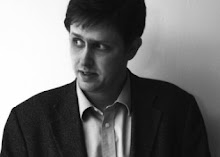Editor’s Note:
Today’s guest
post comes from Loren Kleinman – a prize-winning poet with New Jersey roots. In
addition to having published anthology of poems, she’s also a noted columnist
and interviewer and several of her interviews have appeared in USA Today and
the Huffington Post.
Loren was
also gracious enough to host yours truly as the first interview subject on her
newest website. While she will be on my podcast in the fall to discuss her new
book, I thought it would be fun to have her jot down a few thoughts for my blog
and offer up a few leads for those among you that might be looking for the next
book that you absolutely, positively, have to have on your shelf.
Loren, the
floor is yours…
CJR
CJR
My Top Five Books (with a bullet*)
Asking me
what my top ten favorite books are and why, is like asking me if like chocolate
or sex more. Not an easy question to
answer. And there are times when I like one more than the other. (Sex versus
chocolate, I mean.) But when it comes to books, I find myself gnawing on a few
at a time. (Some more than others; some less than others.) Some books I want to
read all at once, and some books I pick at the lines, cut them from the pages,
and tape them up on the wall in my mind.
I’ve narrowed
it down though. And even though it hurts to leave some writers out (Dostoevsky, Proust, Bly, Blake, Woolf, Dickinson…I
could keep listing) we have to get on with the show. So here are my
top five books: The ones I love. The ones that made me laugh. The ones that
made me cry. And the ones that gave me unquestionable line envy.
Here we go.
If I were
hand gliding, scared shitless of the fall, I’d keep this book close to my
chest. Wright is a master at writing about the fall and with total compassion he shows us how to live again (or at
least gives us a head start). His poems are transformative, seamless. “If I’m
walking the streets/overwhelmed with this love for the living,” it would be
because I’m reading Wright. If you’re writing about “bad things” or exploring
the vastness of the human condition, read this book. Despite the “bad things”
that life sometimes breeds, he reminds us it’s always “possible to live.” And that’s a good thing.
An imagist
associated with the likes of Ezra Pound, H.D. (AKA Hilda Doolittle) creates a new kind of text, a “personal bible” if you
will. Written during World War II, Aliki Barnstone says H.D. asks readers to
“venerate both her voice and the figure of Woman as poet, mystical seer, and
god” (VIII). I always feel a part of the “voyagers, discoverers/of
the not known” when I read this book. She takes the reader to Egypt and ancient
London and then introduces us to the woman gods like Aphrodite and Venus. She’s
like a feminist time machine. Safety not guaranteed, and “different from the
pillar-of-fire/that comes after…”
#3: Ariel by Sylvia Path
The poems are raw and often heart breaking, but also address
a sense of peace, which make her work so accessible. What I love: Plath’s
writing has the ability to always seem contemporary, fresh. She’s a poet to
read and read again. You must read again and again.
Do I really need to tell you why this is a top fiver? OK.
OK. Stop yelling. Would it help if I said you’re “the light of my life, fire of
my loins. My sin, my soul. Lo-lee-ta…” Ahem. Excuse me. I get carried away. “Ladies
and gentlemen of the jury,” read no further, Nabokov is the father of literary
word play. Exhibit one: Chapter 1, third paragraph reads, “You can always count
on a murderer for a fancy prose style.” Nabokov’s first person narrator Humbert
Humbert is so enchanting that you often forget he was a criminal. (Interesting
fact: Nabokov was an avid chess player, and often considered to be a master at
solving chess problems. His love for chess showed up in his writing, often
treating the progression of his chapters as moves on a chess board.)
A tie at #5 (for different reasons): Say Her Name by Francisco Goldman & Three Days by Charlie Smith
I love Goldman for his story, Smith for his language, and
both because they represent love and loss and loving again (maybe).
“Love is a religion. You can only believe it when you
experienced it,” wrote Goldman, author of Say Her Name. He wrote the book after his wife Aura died
in a swimming accident. He blamed himself for her death, but rather than emotionally
drowning he wrote Say
Her Name instead. The book pays homage to healing through acts of
love and remembrance. He reinforces Wright’s hope for humanity in that it’s “possible to live,” even after
tragedy.
“If you left
me, I would fade out like a dying Indian tribe. I’d disappear like the
ivory-billed woodpecker. They’d see me, near the end, standing down on Calle
Cinquo wearing one of your nightgowns, explaining things to the traffic”
(Smith). Ah…Charlie Smith. If you ever wanted to disappear into the folds of
the pages, in between the lines of text, then read Smith. If you ever wanted to
feel total prose envy, read Smith. Or just read him because reading about
star-crossed lovers is always a sad, and yet, exhilarating experience.
And now, ladies
and gentlemen of the jury, on to what’s really important: What are your favorite
books/authors?


Holy god, so sorry I missed this post until now. Love that trivia about Nabokov, and of course, a fan of Lolita.
ReplyDeleteExcellent choices, Loren
xox
eden
Thank you Eden! So sorry for the late reply! Love, love Nabokov. Total prose envy.
ReplyDelete